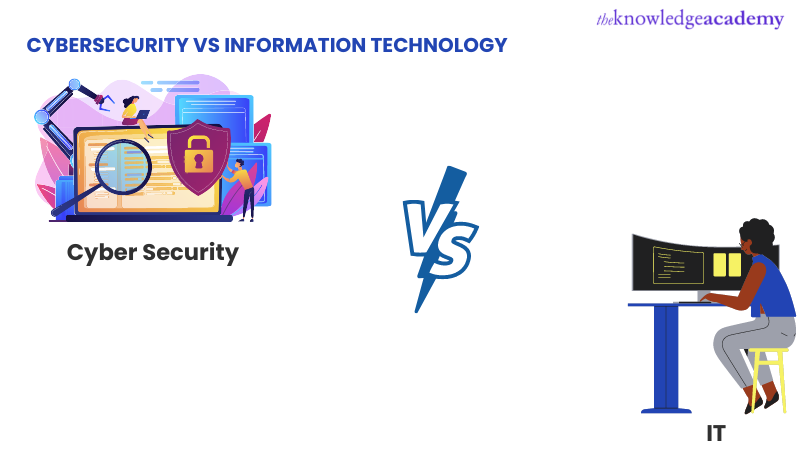We may not have the course you’re looking for. If you enquire or give us a call on +39 800580270 and speak to our training experts, we may still be able to help with your training requirements.
Training Outcomes Within Your Budget!
We ensure quality, budget-alignment, and timely delivery by our expert instructors.

According to PWC's 2022 Global Digital Trust Insights, more than 66% of firms anticipate increased spending on Cyber Security compared to previous years. More than a third of these businesses forecast double-digit growth in cyber spending. One of the tech sectors with the highest demand is Cyber Security for Business. Established Information Technology (IT) experts looking for fresh, professional challenges are driven to it. Tech-savvy IT professionals are frequently drawn to Cybersecurity because of the variety of jobs available.
Employers searching for Cybersecurity specialists seek a combination of real-world experience and technical knowledge, just like the rest of the IT sector. Despite concerns about recession, the IT sector has already shown that it is immune to the economic slowdown. Check out this blog to know how to upgrade your IT career switching to Cyber Security. This blog will take you through the process of transitioning your IT career to Cyber Security.
Table of Contents
1) Why a career in Cyber Security?
2) How Are Cybersecurity Careers Different from Careers in IT?
3) How to upgrade your career in Cyber Security?
4) Reasons to switch to Cyber Security Career
5) Conclusion
Do you want to learn how to reduce the risks associated with Cybersecurity? Then, sign up right away for the CCNA Cybersecurity Operation Training course!
Why a career in Cyber Security?
You may be asking yourself, "Why should I be concerned, and why Cyber Security?" if you already work in the IT industry. For instance, companies are switching to cloud computing to reduce costs, as a large proportion of these expenses are associated with the workforce of the IT department. Because of this, smart IT professionals look to the future to predict what is ahead and make necessary preparations. What will be next, offering more job opportunities than any other area of IT? The answer is Cybersecurity.
Strong IT networking principles, practical IT & networking experience, and more specialised security credentials form the basis for any profession in Cyber Security. The Cybersecurity industry offers a wide range of job options. Information Security Analyst, Chief Information Security Officer, Security Architect, and Security Engineer are examples of potential careers. Cyber Security is an exciting IT career due to compensation and a strong job market. Because there is a shortage of experienced Cybersecurity specialists, wages are constantly rising.
How Are Cybersecurity Careers Different from Careers in IT?

There are some similarities between Cybersecurity and IT careers. IT specialists frequently carry out coding, networking, database management, and system configuration and administration. These fundamental abilities are also used by Cybersecurity experts. The protection of people, devices, and data is a common aim shared by Cybersecurity and information technology, although both fields have quite diverse approaches and focus on various problems. Let's take a look at the differences between IT jobs and Cybersecurity jobs:
|
S NO. |
IT Jobs |
Cybersecurity Jobs |
|
1 |
It focuses on supporting or developing computer networks, applications, and systems. |
It focuses on safeguarding digital networks, assets, and information from threats. |
|
2 |
It involves proficiency in computer networks, hardware, software, problem-solving, coding, and project management. |
It involves fixing issues, taking preventative steps, responding to incidents, managing risks, and evaluating systems |
|
3 |
A bachelor's degree is a must, although some higher roles may also require or benefit from a master's degree. |
A bachelor's degree is essential, while a master's degree may be useful or perhaps required to proceed to some higher Cybersecurity roles. |
|
4 |
Employers include industries like finance and insurance firms, healthcare organisations, IT service providers, retailers, and governmental organisations. |
Employers are governmental organisations, financial institutions, healthcare organisations, and IT service providers |
|
5 |
Job roles in IT include IT Director, Software Developer, and Programmer |
Cybersecurity jobs include governmental organisations, financial institutions, healthcare organisations, and IT service providers |
Do you want to know how to spot attacks and weaknesses before infiltration? For professional training and assistance, you can register in the CompTIA Cybersecurity Analyst CySA+ Certification course right away.
How to upgrade your career in Cyber Security?
Let’s understand the ways to upgrade a career in Cyber Security:
Reviewing the Foundations
To enter the field of Cybersecurity, technical skills like programming languages are quite helpful. For instance, as a programmer, you will be familiar with errors, buffer overflows, and other similar vulnerabilities, as well as how to address them and safeguard the system.
Emphasising a particular interest
In the current environment, when there is fierce competition among businesses, it is essential to concentrate on becoming a specialist rather than a generalist. Additionally, one must be aware of their areas of interest in the relevant field when focused on becoming a Cybersecurity professional.
Practical Experience
The more you apply real-world experiences to actual situations, the better you will grasp them. You can start working on live projects at the beginning level itself. You will discover more about different aspects of Cybersecurity as you immerse yourself in the subject.
Obtain certifications
An ideal Cybersecurity professional possesses both hard and soft talents. One should earn Cybersecurity certificates, offered by numerous organisations, and add them to their profile to get started in this field. Some top Cybersecurity certifications are listed below:
a) Certified Information Systems Security Professional (CISSP)
b) Certified Information Security Manager (CISM)
c) Certified Cloud Security Professional (CCSP)
d) Certified in Risk and Information Systems Control (CRISC)
e) Systems Security Certified Practitioner (SSCP)
f) Certified Information Systems Auditor (CISA)
Improve your resume
When changing jobs, updating your CV to reflect the position you're looking for is vital. There isn't much to alter when you're switching from an IT job to one in Cybersecurity. Still, you do need to add the Cybersecurity credentials and, most importantly, your hands-on experiences and real-world-based projects.
Do you possess a high level of experience and understanding in a variety of security-related fields? Then you should take this Microsoft Cybersecurity Architect SC100 Training!
Reasons to switch to Cyber Security Career

Anyone wishing to enter the Cyber Security industry can gain a number of advantages due to the state of the economy and the field itself. Let's take a look at the following:
Advanced degrees or defined prerequisites
Cybersecurity is a field that revolves all around proven tech skills. It is recommended to have a master's degree, but it is not a must for both the employee and the employer. Also, Cyber Security does not have a standard requirement for qualifying for a particular exam to get through any job in Cyber Security.
The retraining process is quicker
In Cybersecurity, the retraining process is much quicker compared to any other field. With Cybersecurity, you can retool, retrain and get into this field in less than two years.
Opportunity to work with secret agencies
It is very well known that Cybersecurity Professionals have a clear chance of working with prestigious Fortune 500 companies like Dell, Accenture, InfoTech, and many more. Cybersecurity experts who work towards showcasing their worthy skills have better chances to work with top-secret government agencies and intelligence agencies e.g., MI6, Mossad, and NSA.
Explore globally with Cybersecurity
Several homegrown Cybersecurity professionals are working to safeguard consumers, corporations, and government institutions. Globally, the number of cyberattacks is increasing faster than the number of Cyber–Security Experts. Due to the increased need for Cybersecurity specialists and experts, there are many opportunities for them to travel abroad.
A Job that Contributes to the Greater Good
Cybersecurity protects against a wide range of cyberattacks that attempt to harm your confidentiality, availability, and integrity. Cybercrime is still on the rise and is becoming worse every day. Millions become victims of DDoS assaults, ransomware, spyware, and phishing scams every year. The online threat to businesses, large or small, and to people as well, is significantly growing. National crime agencies, police forces, and company security teams are all battling this threat globally, but they still require additional assistance.
Better employability prospects
Businesses and public bodies are searching for professionals who can defend their systems from cybercriminals in the face of online attacks. They are prepared to pay high wages and offer training and growth. Anyone beginning a career in Cybersecurity has many excellent opportunities:
a) Cybersecurity salaries have a higher growth potential than 90% of other industries' salaries.
b) Compensation for senior security experts is significantly higher than the median average.
c) Merit determines your salary, not your sex, age, or ethnicity.
Conclusion
Cyber Security can help you succeed in your IT profession by providing numerous career opportunities, especially in today's unstable job market. It acts as a strategy to future-proof your career against the technological changes that will occur. We hope this blog helps you understand why to choose a career in Cyber Security, what is a career in Cyber Security is, and the suitable reasons to choose a job in Cyber Security.
If you want to improve your abilities and learn more about Information Security, you can sign up for CISSP Training right away.
Frequently Asked Questions
Upcoming IT Security & Data Protection Resources Batches & Dates
Date
 Certified Cyber Security Professional (CCS-PRO)
Certified Cyber Security Professional (CCS-PRO)
Fri 21st Mar 2025
Fri 23rd May 2025
Fri 22nd Aug 2025
Fri 5th Dec 2025







 Top Rated Course
Top Rated Course




 If you wish to make any changes to your course, please
If you wish to make any changes to your course, please


